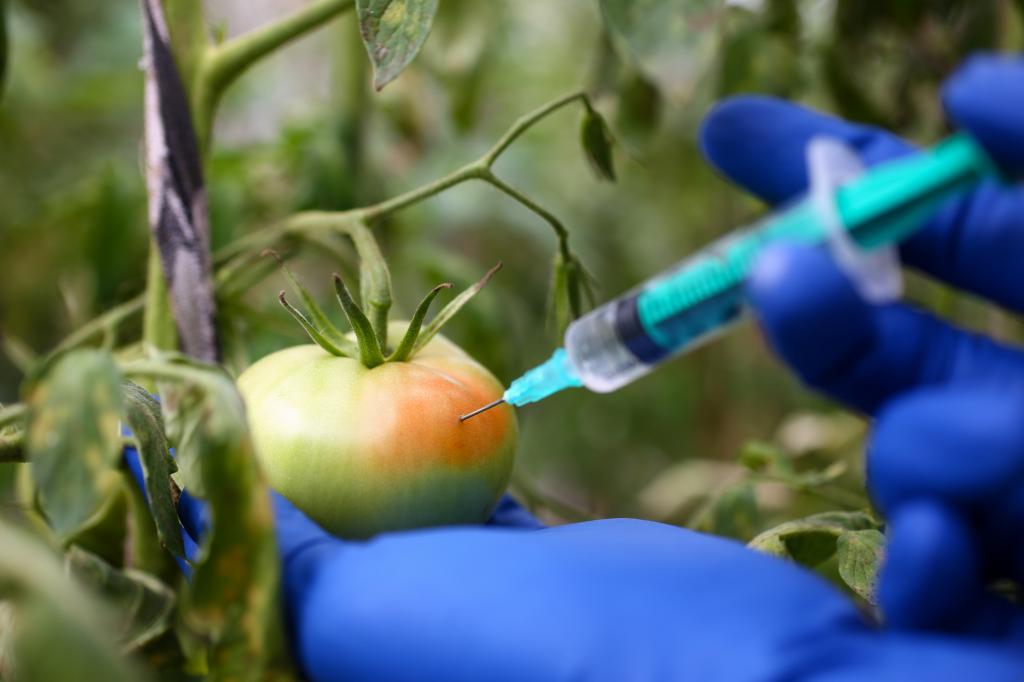The terms globalization and a better standard of living have its pros and cons. In a world that is globalized everyone wants to grow and have a better standard of living, afford better brands, have a luxury, there is a never-ending want of more and more. In this race of wanting more, we don’t realize that we are losing the most precious things, i.e. health and time.
It is often advised that to have a healthy life we should consume an adequate amount of fresh fruits and vegetables that provide us with the proper amount of vitamins and nutrients especially Vitamin A & C, required by our body.
There is a growing demand for healthy lifestyles, leading to there is an increasing demand for fruits and vegetables. To compete in this demand-supply chain, and earn easy and fast money, farmers/traders artificially ripening fruits and vegetables by using chemicals. In a typical process it is always better that the fruits and vegetables grow naturally, but to meet the requirement of more elongated travel distance fruits and vegetables are artificially ripened. Another reason for artificial ripening is meeting the demand for seasonal fruits and vegetables and cutting on the storage cost.
The fruit ripening is a physiological and biochemical process that makes the fruits and vegetables edible, palatable and nutritious; it also leads to sugar content, acidity, change in colour, texture and aroma.
Fruits are classified as climacteric fruits that can be ripened after being harvested, e.g. mango, apple, tomato, banana, etc. & non-climacteric fruits that cannot be ripened after harvest, e.g. grapes, cherry, strawberry, etc.
Ripening of fruits and vegetables are triggered by gaseous compound, i.e. ethylene, acetylene, etc. These enzymes convert complex polysaccharides into simple sugars and make the skin of the fruits soft. In artificial ripening, this process is done using chemicals.
The most frequently used chemical for ripening is calcium carbide, Food Safety and Standards Authority of India (FSSAI) has banned calcium carbide under the Prevention of Food Adulteration (PFA) Act, 1954. Another chemical that is used is ethephon. It penetrates the fruit and decomposes ethylene. Calcium Carbide is carcinogenic and has traces of phosphorous hydride and arsenic; it is cheap and easily available in the market. Though Calcium Carbide is banned in many countries, it is widely used in developing countries. FSSAI has permitted use of ethylene gas for ripening fruits, but it is expensive.
The use of these chemicals leads to damaging the vitamins, and the essential nutrients that we get from the fruits and vegetables.
The use of Calcium Carbide leads to fruits and vegetables getting toxic, causing harmful effects such as the upset stomach, nausea, vomiting, weakness, sore throat, cough, burning sensation in the abdomen, irritation of the eyes and skin, ulcers on the skin, etc. Consumption of acetylene can reduce oxygen supply to the brain and can cause prolonged hypoxia. Calcium carbide is alkaline and irritates the mucosal tissue in the abdominal region. The consumption of ethylene may cause kidney failure as well.
One can differentiate between natural and artificially ripened fruits and vegetables, artificially ripened fruits and vegetables have uniform skin colour, they have different taste and has a shorter shelf life. The artificial ripening has become an essential part of the fruit and vegetable trade as naturally ripe fruits cannot stay fresh for longer and will get rotten during the travel time.
Some of the precautions that consumers can take to avoid intake of the harmful chemicals are washing the fruits and vegetables thoroughly with running potable water before eating, wherever possible peel the skin of the fruits and vegetables before eating.
These chemicals should be banned due to the hazardous effects they produce; the concerned authorities must take appropriate action in this regard. Though rules and regulations dealing with artificial ripening with chemicals are available, stricter laws need to be in place. Also, natural ways and products should be researched for ripening.
Certain recommendation by FSSAI has been mentioned on natural ripening, i.e. fruits may be ripened naturally using the below-mentioned methods within 4-6 days, if kept at room temperature, these methods entrap ethylene around fruits and facilitate faster ripening:
- Harvest the fruits at optimum maturity
- Wrap the fruits individually with paper or place it in a paper bag
- Keep unripe fruits as layers over paddy husk or wheat straw
- Keep unripe fruits inside an airtight rice container
It is always suggestible to eat fresh fruits and vegetables that are seasonal and are locally available. There is also a need to be contented, an Indian Avocado costing Rs. 250 will give the same amount of taste and nutrients than an imported Avocado costing Rs. 500. Affording expensive fruits and vegetables is not necessarily a measure of a happy life.

